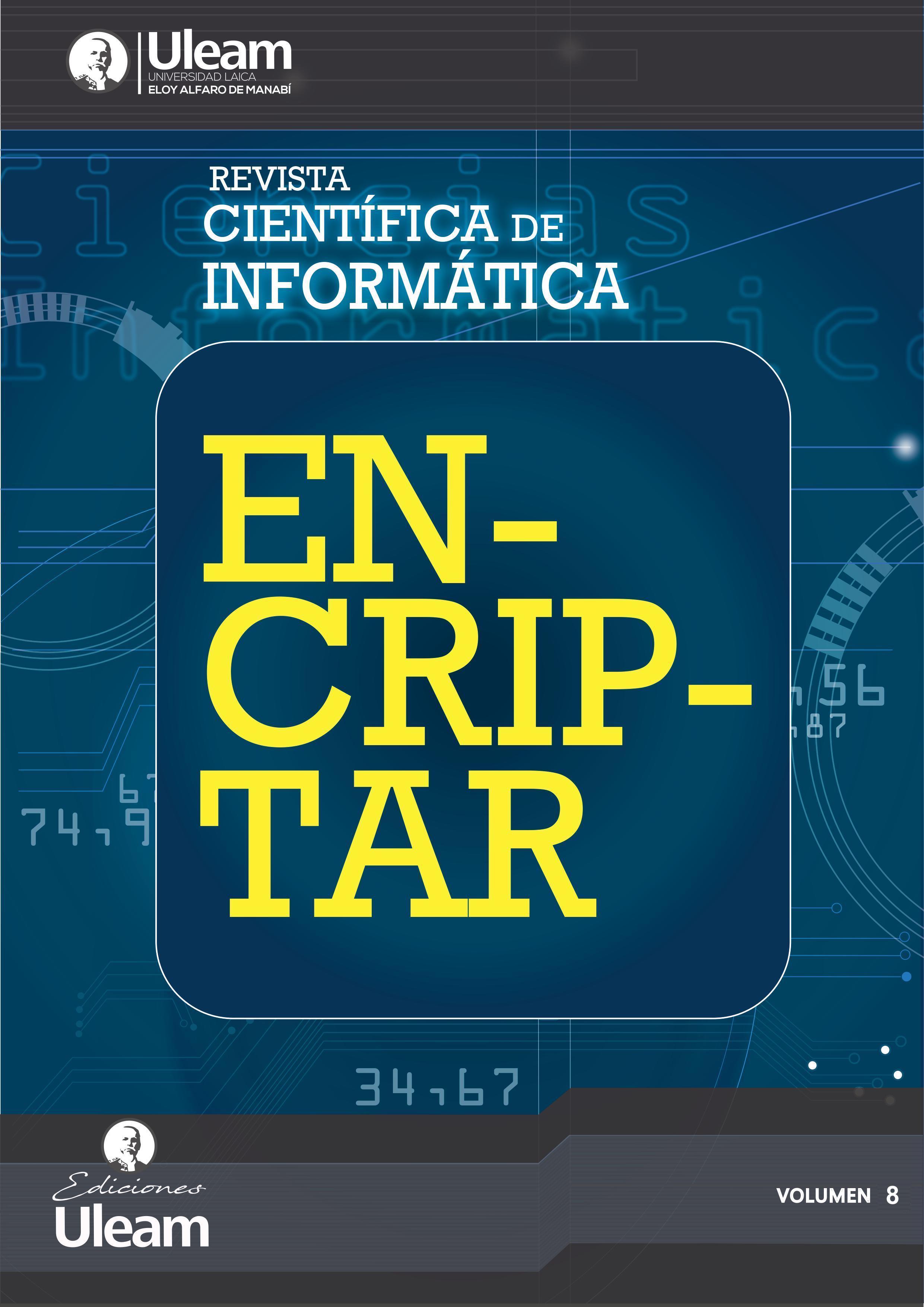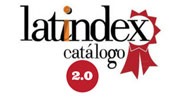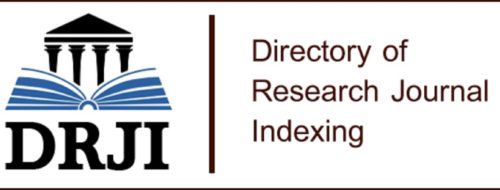Machine Learning in Optimizing Energy Consumption in Smart Buildings: Trends and Challenges
DOI:
https://doi.org/10.56124/encriptar.v8i15.011Keywords:
electrical energy, consumption, forecast, optimizationAbstract
At the forefront of the technological and sustainable revolution, smart buildings stand out as models of efficiency and comfort, with a projected growth of 45 million in 2022 to 115 million by 2026. These buildings use advanced technology to optimize resources, improving the safety and well-being of their occupants. However, they face challenges in urban infrastructure, balancing accuracy, scalability, and adaptability in the field of the Internet of Things. The importance of data and machine learning to predict and improve energy consumption is emphasized, addressing the need for efficient and practical predictive models that handle complex data and capture spatiotemporal patterns. Gaps are identified in the standardized comparison of models, the efficiency of predictive algorithms, and the transformation of research into practical applications. This study asks key questions about resource management and optimizing energy consumption through machine learning, proposing specific objectives such as data collection and evaluation of models to validate the effectiveness and improve the lives of occupants, as well as contribute to the economic, environmental, and social impact. A systematic methodology for the literature review is followed, employing the PRISMA statement, and research questions are posed to guide the identification of trends and responses to the use of machine learning to predict energy consumption in smart buildings.
Downloads
References
Abaimov, S., & Martellini, M. (2022). Understanding Machine Learning. In Advanced Sciences and Technologies for Security Applications (pp. 15–89). Springer. https://doi.org/10.1007/978-3-030-91585-8_2
Ahmad, I., Shahabuddin, S., Sauter, T., Harjula, E., Kumar, T., Meisel, M., Juntti, M., & Ylianttila, M. (2021). The Challenges of Artificial Intelligence in Wireless Networks for the Internet of Things: Exploring Opportunities for Growth. IEEE Industrial Electronics Magazine, 15(1), 16–29. https://doi.org/10.1109/MIE.2020.2979272
Ahmed, M. A., Chavez, S. A., Eltamaly, A. M., Garces, H. O., Rojas, A. J., & Kim, Y.-C. (2022). Toward an Intelligent Campus: IoT Platform for Remote Monitoring and Control of Smart Buildings. Sensors, 22(23). https://doi.org/10.3390/s22239045
Al-Shargabi, A. A., Almhafdy, A., Ibrahim, D. M., Alghieth, M., & Chiclana, F. (2022). Buildings’ energy consumption prediction models based on buildings’ characteristics: Research trends, taxonomy, and performance measures. Journal of Building Engineering, 54. https://doi.org/10.1016/j.jobe.2022.104577
Annadurai, C., Nelson, I., Devi, K. N., Manikandan, R., Jhanjhi, N. Z., Masud, M., & Sheikh, A. (2022). Biometric Authentication-Based Intrusion Detection Using Artificial Intelligence Internet of Things in Smart City. Energies, 15(19). https://doi.org/10.3390/en15197430
Balaji, S., & Karthik, S. (2023). Energy Prediction in IoT Systems Using Machine Learning Models. Computers, Materials and Continua, 75(1), 443–459. https://doi.org/10.32604/cmc.2023.035275
Barker, O. (2020). Realizing the Promise of the Internet of Things in Smart Buildings. Computer, 53(2), 76–79. https://doi.org/10.1109/MC.2019.2952419
Bedi, G., Venayagamoorthy, G. K., & Singh, R. (2020). Development of an IoT-driven building environment for prediction of electric energy consumption. IEEE Internet of Things Journal, 7(6), 4912–4921. https://doi.org/10.1109/JIOT.2020.2975847
Blechmann, S., Sowa, I., Schraven, M. H., Streblow, R., Müller, D., & Monti, A. (2023). Open source platform application for smart building and smart grid controls. Automation in Construction, 145. https://doi.org/10.1016/j.autcon.2022.104622
Bourdeau, M., qiang Zhai, X., Nefzaoui, E., Guo, X., & Chatellier, P. (2019). Modeling and forecasting building energy consumption: A review of data-driven techniques. In Sustainable Cities and Society (Vol. 48). Elsevier Ltd. https://doi.org/10.1016/j.scs.2019.101533
Broday, E. E., & da Silva, M. C. G. (2023). The role of internet of things (IoT) in the assessment and communication of indoor environmental quality (IEQ) in buildings: a review. Smart and Sustainable Built Environment, 12(3), 584–606. https://doi.org/10.1108/SASBE-10-2021-0185
Carli, R., Cavone, G., Othman, S. B., & Dotoli, M. (2020). IoT based architecture for model predictive control of HVAC systems in smart buildings. Sensors (Switzerland), 20(3). https://doi.org/10.3390/s20030781
Casado-Vara, R., Rey, A. M., Affes, S., Prieto, J., & Corchado, J. M. (2020). IoT network slicing on virtual layers of homogeneous data for improved algorithm operation in smart buildings. Future Generation Computer Systems, 102, 965–977. https://doi.org/10.1016/j.future.2019.09.042
Choi, H.-S., & Rhee, W.-S. (2014). Iot-based user-driven service modeling environment for a smart space management system. Sensors (Switzerland), 14(11), 22039–22064. https://doi.org/10.3390/s141122039
Chou, J.-S., & Tran, D.-S. (2018). Forecasting energy consumption time series using machine learning techniques based on usage patterns of residential householders. Energy, 165, 709–726. https://doi.org/10.1016/j.energy.2018.09.144
Do, H., & Cetin, K. S. (2018). Residential Building Energy Consumption: a Review of Energy Data Availability, Characteristics, and Energy Performance Prediction Methods. Current Sustainable/Renewable Energy Reports, 5(1), 76 – 85. https://doi.org/10.1007/s40518-018-0099-3
Dylan, T., Durrant, A. C., & Cerci, S. (2021). Lanterns configuring a digital resource to inspire preschool children’s free play outdoors. Conference on Human Factors in Computing Systems - Proceedings. https://doi.org/10.1145/3411764.3445745
González-Vidal, A., Jiménez, F., & Gómez-Skarmeta, A. F. (2019). A methodology for energy multivariate time series forecasting in smart buildings based on feature selection. Energy and Buildings, 196, 71–82. https://doi.org/10.1016/j.enbuild.2019.05.021
Hernández-Callejo, L., Gómez, A., Nesmachnow, S., Leite, V., Prieto, J., & Ferreira, Â. (n.d.). CITIES Energetic Efficiency, Sustainability; Infrastructures, Energy and the Environment; Mobility and IoT; Governance and Citizenship. www.mdpi.com/journal/applsci
Hoy, M. B. (2016). Smart Buildings: An Introduction to the Library of the Future. Medical Reference Services Quarterly, 35(3), 326–331. https://doi.org/10.1080/02763869.2016.1189787
Jiang, J., Liu, F., Ng, W. W. Y., Tang, Q., Wang, W., & Pham, Q.-V. (2022). Dynamic Incremental Ensemble Fuzzy Classifier for Data Streams in Green Internet of Things. IEEE Transactions on Green Communications and Networking, 6(3), 1316–1329. https://doi.org/10.1109/TGCN.2022.3151716
Juniper Research. (2024, November 10). Smart Buildings Market Trends, Size, Strategies 2024-29.
Khanna, A., Arora, S., Chhabra, A., Bhardwaj, K. K., & Sharma, D. K. (2019). IoT architecture for preventive energy conservation of smart buildings. In Studies in Systems, Decision and Control (Vol. 206, pp. 179–208). Springer International Publishing. https://doi.org/10.1007/978-981-13-7399-2_8
Khaoula, E., Amine, B., & Mostafa, B. (2023). Evaluation and Comparison of Energy Consumption Prediction Models Case Study: Smart Home. In Lecture Notes on Data Engineering and Communications Technologies (Vol. 164, pp. 179–187). Springer Science and Business Media Deutschland GmbH. https://doi.org/10.1007/978-3-031-27762-7_17
Kim, J., Jeon, Y., & Kim, H. (2018). The intelligent IoT common service platform architecture and service implementation. Journal of Supercomputing, 74(9), 4242–4260. https://doi.org/10.1007/s11227-016-1845-1
Kumar, A., Sharma, S., Goyal, N., Singh, A., Cheng, X., & Singh, P. (2021). Secure and energy-efficient smart building architecture with emerging technology IoT. Computer Communications, 176, 207–217. https://doi.org/10.1016/j.comcom.2021.06.003
Kuo, S.-Y., Huang, X.-R., & Chen, L.-B. (2022). Smart ports: Sustainable smart business port operation schemes based on the Artificial Intelligence of Things and blockchain technologies. IEEE Potentials, 41(6), 32–37. https://doi.org/10.1109/MPOT.2022.3198808
Lee, C.-T., Chen, L.-B., Chu, H.-M., & Hsieh, C.-J. (2022). Design and Implementation of a Leader-Follower Smart Office Lighting Control System Based on IoT Technology. IEEE Access, 10, 28066–28079. https://doi.org/10.1109/ACCESS.2022.3158494
Li, K., Zhao, J., Hu, J., & Chen, Y. (2022). Dynamic energy efficient task offloading and resource allocation for NOMA-enabled IoT in smart buildings and environment. Building and Environment, 226. https://doi.org/10.1016/j.buildenv.2022.109513
Li, W., Li, H., & Wang, S. (2021). An event-driven multi-agent based distributed optimal control strategy for HVAC systems in IoT-enabled smart buildings. Automation in Construction, 132. https://doi.org/10.1016/j.autcon.2021.103919
Louridas, P., & Ebert, C. (2016). Machine Learning. IEEE Software, 33(5), 110–115. https://doi.org/10.1109/MS.2016.114
Maatoug, A., Belalem, G., & Mahmoudi, S. (2023). A location-based fog computing optimization of energy management in smart buildings: DEVS modeling and design of connected objects. Frontiers of Computer Science, 17(2). https://doi.org/10.1007/s11704-021-0375-z
Medhat, M., El-Shafey, K., & Rashed, A. (2020). IoT-fog based smart-building security system design and performance evaluation. Journal of Computer Science, 16(9), 1325–1333. https://doi.org/10.3844/jcssp.2020.1325.1333
Metallidou, C. K., Psannis, K. E., & Egyptiadou, E. A. (2020). Energy Efficiency in Smart Buildings: IoT Approaches. IEEE Access, 8, 63679–63699. https://doi.org/10.1109/ACCESS.2020.2984461
Moura, P., Moreno, J. I., López, G. L., & Alvarez-Campana, M. (2021). IoT platform for energy sustainability in university campuses. Sensors (Switzerland), 21(2), 1–22. https://doi.org/10.3390/s21020357
Pašek, J., & Sojková, V. (2018). Facility management of smart buildings. International Review of Applied Sciences and Engineering, 9(2), 181–187. https://doi.org/10.1556/1848.2018.9.2.15
Rajamohan, K., Rangasamy, S., Pinto, N. A., Manoj, B. E., Mukherjee, D., & Shukla, J. (2023). IoVST: Internet of vehicles and smart traffic - Architecture, applications, and challenges. In Handbook of Research on Machine Learning-Enabled IoT for Smart Applications Across Industries (pp. 292–315). IGI Global. https://doi.org/10.4018/978-1-6684-8785-3.ch015
Rajaoarisoa, L., M’Sirdi, N. K., Sayed-Mouchaweh, M., & Clavier, L. (2023). Decentralized fault-tolerant controller based on cooperative smart-wireless sensors in large-scale buildings. Journal of Network and Computer Applications, 214. https://doi.org/10.1016/j.jnca.2023.103605
Rico, A., Smuts, C., & Larson, K. (2022). Chameleon: Adaptive Sensor Intelligence for Smart Buildings. IEEE Internet of Things Journal, 9(19), 19362–19372. https://doi.org/10.1109/JIOT.2022.3165349
Shi, C., Liu, P., Chen, Y., Zhou, Z., Yang, J., Zhao, C., Chen, B., Yang, S., & Mumtaz, S. (2022). Adversarial learning-based multi-timescale network resource management in multi-mode green IoT network for smart building. IET Communications, 16(14), 1739–1751. https://doi.org/10.1049/cmu2.12441
Silva, C., Costa, N., Grilo, C., & Veloz, J. (2018). JavaScript middleware for mobile agents support on desktop and mobile platforms. In Advances in Intelligent Systems and Computing (Vol. 721). https://doi.org/10.1007/978-3-319-73450-7_70
Somu, N., R, G. R. M., & Ramamritham, K. (2021). A deep learning framework for building energy consumption forecast. Renewable and Sustainable Energy Reviews, 137. https://doi.org/10.1016/j.rser.2020.110591
Sun, J., Kuruganti, T., Fricke, B., Xuan, S., Li, Y., Wilkerson, W., & Cunningham, C. (2022). Automated fault detection and diagnosis deployment Internet of Things solution for building energy system. Journal of Building Engineering, 61. https://doi.org/10.1016/j.jobe.2022.105291
Sun, Y., Wu, T.-Y., Li, X., & Guizani, M. (2017). A Rule Verification System for Smart Buildings. IEEE Transactions on Emerging Topics in Computing, 5(3), 367–379. https://doi.org/10.1109/TETC.2016.2531288
Wang, M., Yeh, W.-C., Chu, T.-C., Zhang, X., Huang, C.-L., & Yang, J. (2018). Solving multi-objective fuzzy optimization in wireless smart sensor networks under uncertainty using a hybrid of IFR and SSO algorithm. Energies, 11(9). https://doi.org/10.3390/en11092385
Wang, W.-C., Dwijendra, N. K. A., Sayed, B. T., Alvarez, J. R. N., Al-Bahrani, M., Alviz-Meza, A., & Cárdenas-Escrocia, Y. (2023). Internet of Things Energy Consumption Optimization in Buildings: A Step toward Sustainability. Sustainability (Switzerland), 15(8). https://doi.org/10.3390/su15086475
Wang, Z., Liu, J., Zhang, Y., Yuan, H., Zhang, R., & Srinivasan, R. S. (2021). Practical issues in implementing machine-learning models for building energy efficiency: Moving beyond obstacles. In Renewable and Sustainable Energy Reviews (Vol. 143). Elsevier Ltd. https://doi.org/10.1016/j.rser.2021.110929
Wang, Z., & Srinivasan, R. S. (2017). A review of artificial intelligence based building energy use prediction: Contrasting the capabilities of single and ensemble prediction models. In Renewable and Sustainable Energy Reviews (Vol. 75, pp. 796–808). Elsevier Ltd. https://doi.org/10.1016/j.rser.2016.10.079
Yan, Y. (2022). Machine Learning Fundamentals. In Machine Learning in Chemical Safety and Health: Fundamentals with Applications (pp. 19–46). wiley. https://doi.org/10.1002/9781119817512.ch2
Zekić-Sušac, M., Has, A., & Knežević, M. (2021). Predicting energy cost of public buildings by artificial neural networks, CART, and random forest. Neurocomputing, 439, 223–233. https://doi.org/10.1016/j.neucom.2020.01.124
Published
How to Cite
Issue
Section
License
Copyright (c) 2025 Scientific Journal of Informatics ENCRYPT - ISSN: 2737-6389.

This work is licensed under a Creative Commons Attribution-NonCommercial-ShareAlike 4.0 International License.















